With all of these moves towards digital delivery in entertainment, we thought it would be worthwhile understanding one of the key items in this process – how to get the digital content to UK households.
Steve Kennedy is an acknowledged expert in the telecoms and data networks field, so it was an obvious choice for us to ask him to write an overview of how other IP operators can compete with BT – by creating their own data network. To do this, they need to put their own equipment into the telephone exchanges that connect to peoples houses. That process is Local Loop Unbundling (LLU).
Over three days we’ll give you a full background in LLU in the UK.
Yesterdays piece gave an overview of LLU and which companies are players in the UK.
LLU Penetration
All the large operators are going into around 1,000 DLEs (those being the most densely populated), since there are only around 1,200 of them, all the operators are targeting the same DLEs and there’s a lot of overlap.
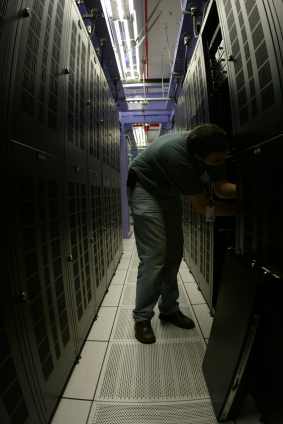 Since the operators all want to get into the same exchanges, there’s overcrowding and BT have to install new hostel space (the space where operators can put their own equipment into) which causes delays. It can take more than 6 months from when an operator puts an order in to being granted access to an exchange.
Since the operators all want to get into the same exchanges, there’s overcrowding and BT have to install new hostel space (the space where operators can put their own equipment into) which causes delays. It can take more than 6 months from when an operator puts an order in to being granted access to an exchange.
LLU (un)Economics
When LLU was announced it was prohibitively expensive, mainly due to Ofcom (or Oftel as it was then) allowing BT to set the pricing models.
Over time the economics have become fairer to operators, with BT being forced to set-up BT Openreach which looks after the physical infrastructure. If they hadn’t formed Openreach, it’s likely Ofcom would have pushed for a split of BT.
Ofcom then made BT not reduce wholesale pricing for their broadband services to give LLU operators a chance to gain a foothold. BT would have to maintain their pricing until April 2007 or 1.5m unbundled lines, whichever came first.
In Dec 2006 there were 1,000,000 unbundled lines and last week Ofcom announced that 1,700,000 unbundled lines had been reached (there was no distinction between Option 2 and 4). BT Wholesale has over 9m broadband customers.
Also Carphone Warehouse (CPW) released their interim results showing they had 2.31m broadband customers, 700,000 utilising LLU.
So out of the 1.7m unbundled lines, CPW have .7m which means there’s 1m split between the rest (mainly the big players, Wanadoo, C&W, Easynet Pipex and Tiscali).
As a rough model that’s 1.7m lines, spread over 1,000 DLEs which makes 1,700 lines unbundled per DLE. There’s 6 big players which means around 280 customers per operator per exchange.
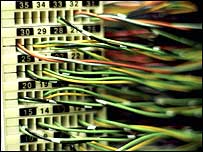 Unfortunately the economics of LLU only work if there’s a lot of customers per exchange i.e. massive scale.
Unfortunately the economics of LLU only work if there’s a lot of customers per exchange i.e. massive scale.
Now that the milestone of 1.5m unbundled lines has been reached, BT Wholesale will be allowed to reduce their pricing (which they’ve said they want to do) which will make the economics even worse.
To get the scale, further consolidation will occur which means fewer LLU operators in the future (Pipex has already put itself up for sale with CPW rumoured to be the front-runner for buying them). They need to do this in order to get the customer penetration per exchange.
The next and final section will cover the possibility of competition to BT and what could happen in the future
Images are courtesy of wb-internet and the BBC, respectively.
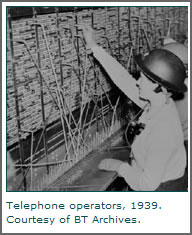 What is Local Loop Unbundling (LLU)?
What is Local Loop Unbundling (LLU)?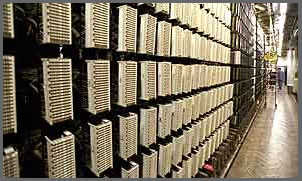 Any operator wanting to offer broadband (and possibly voice) has to put their equipment in these DLEs. However there is a cost to unbundling an exchange (around 100,000 including backhaul) which means operators are only targeting the most densely populated ones.
Any operator wanting to offer broadband (and possibly voice) has to put their equipment in these DLEs. However there is a cost to unbundling an exchange (around 100,000 including backhaul) which means operators are only targeting the most densely populated ones.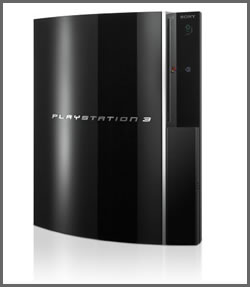 Early pre-UK-release signs weren’t promising, nor were they looking any better when the UK PS3 was selling for £100 under their release price, a couple of days beforehand.
Early pre-UK-release signs weren’t promising, nor were they looking any better when the UK PS3 was selling for £100 under their release price, a couple of days beforehand.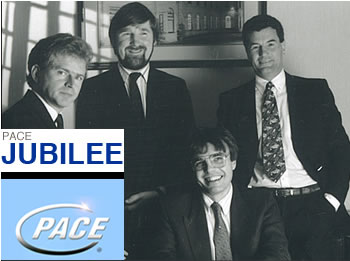 25 years! Staggering how old the industry is now isn’t it?
25 years! Staggering how old the industry is now isn’t it?

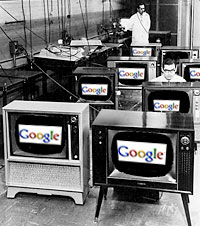 The company is set to unveil deals today with satellite TV service EchoStar Communications and Astound Cable in the US to broker commercials in a similar way to how it offers online advertising.
The company is set to unveil deals today with satellite TV service EchoStar Communications and Astound Cable in the US to broker commercials in a similar way to how it offers online advertising. During the television pilot, Google will serve commercials to EchoStar’s Dish Network satellite channels, a US service which enjoys around 13.1 million subscribers. The adverts won’t look any different to regular ones, carrying no Google branding and appearing in the usual time slots.
During the television pilot, Google will serve commercials to EchoStar’s Dish Network satellite channels, a US service which enjoys around 13.1 million subscribers. The adverts won’t look any different to regular ones, carrying no Google branding and appearing in the usual time slots. The report found that half of all UK adults live in broadband-connected households, up 11% from 12 months ago and a hefty seven times increase from 2002.
The report found that half of all UK adults live in broadband-connected households, up 11% from 12 months ago and a hefty seven times increase from 2002. Although just under half of users had no idea how fast they were connecting to the Internet, the report put the average headline connection speed at 3.8Mbps (up from 1.6Mbps in 2005).
Although just under half of users had no idea how fast they were connecting to the Internet, the report put the average headline connection speed at 3.8Mbps (up from 1.6Mbps in 2005).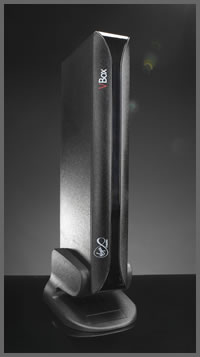 Virgin Media has ramped up the availability of its quadplay (broadband, phone, mobile and TV) services beyond its cable franchise network with today’s announcement of a new digital TV service.
Virgin Media has ramped up the availability of its quadplay (broadband, phone, mobile and TV) services beyond its cable franchise network with today’s announcement of a new digital TV service.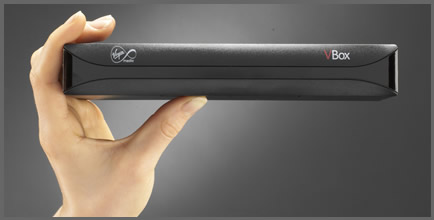
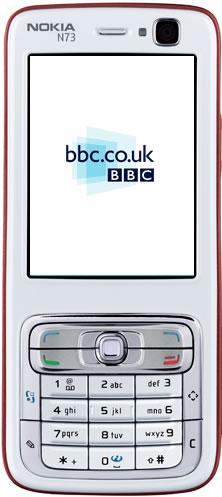 Three UK operators will be taking part, Orange, Vodafone and 3 giving subscribers to the trial the ability to watch BBC One, BBC News 24 and BBC Three streamed on their mobiles. Beyond some sports programmes and programmes where they don’t have the necessary rights.
Three UK operators will be taking part, Orange, Vodafone and 3 giving subscribers to the trial the ability to watch BBC One, BBC News 24 and BBC Three streamed on their mobiles. Beyond some sports programmes and programmes where they don’t have the necessary rights.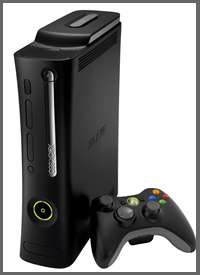 Yesterday Microsoft confirmed that the Xbox 360 Elite is a real product and will begin arriving in US stores on 29 April with an expected retail price of $480.
Yesterday Microsoft confirmed that the Xbox 360 Elite is a real product and will begin arriving in US stores on 29 April with an expected retail price of $480.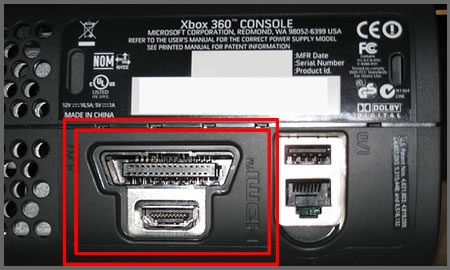
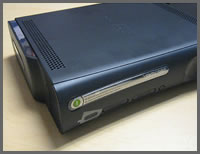 Peter Moore, Corporate Vice President – Interactive Entertainment Business, Microsoft, turned the hyperbole meter way up to deliver the following, “Today’s games and entertainment enthusiast has an insatiable appetite for digital high-definition content. Xbox 360 Elite’s larger hard drive and premium accessories will allow our community to enjoy all that the next generation of entertainment has to offer.”
Peter Moore, Corporate Vice President – Interactive Entertainment Business, Microsoft, turned the hyperbole meter way up to deliver the following, “Today’s games and entertainment enthusiast has an insatiable appetite for digital high-definition content. Xbox 360 Elite’s larger hard drive and premium accessories will allow our community to enjoy all that the next generation of entertainment has to offer.”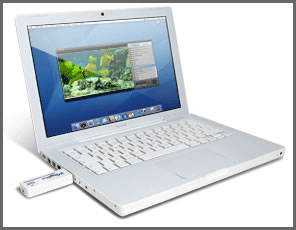 Miglia have not only signed a deal with software suppliers Equinux, but have a package available already with the software, called The Tube. They’re calling the hardware and software bundle the TVMini Express.
Miglia have not only signed a deal with software suppliers Equinux, but have a package available already with the software, called The Tube. They’re calling the hardware and software bundle the TVMini Express.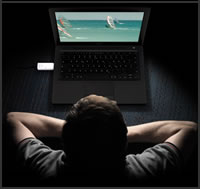 Equinux are confident with the swift reaction of the software, as they tell us it was written “from the ground up” in Cocoa, Apple’s object-oriented application environment designed specifically for developing Mac OS X-only native applications. ie it wasn’t written for Windows and ported over to the Mac.
Equinux are confident with the swift reaction of the software, as they tell us it was written “from the ground up” in Cocoa, Apple’s object-oriented application environment designed specifically for developing Mac OS X-only native applications. ie it wasn’t written for Windows and ported over to the Mac.